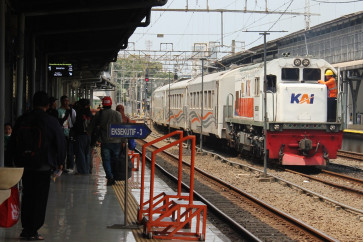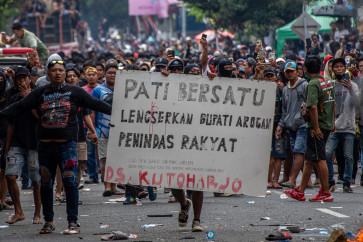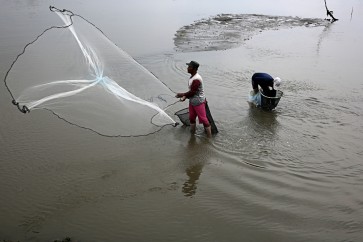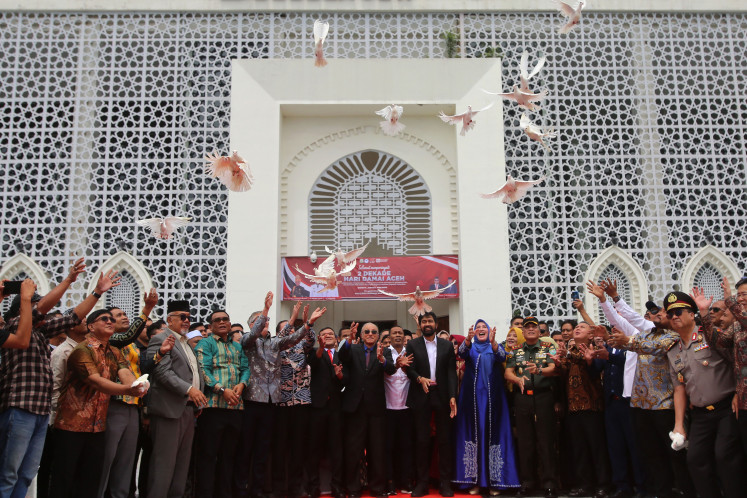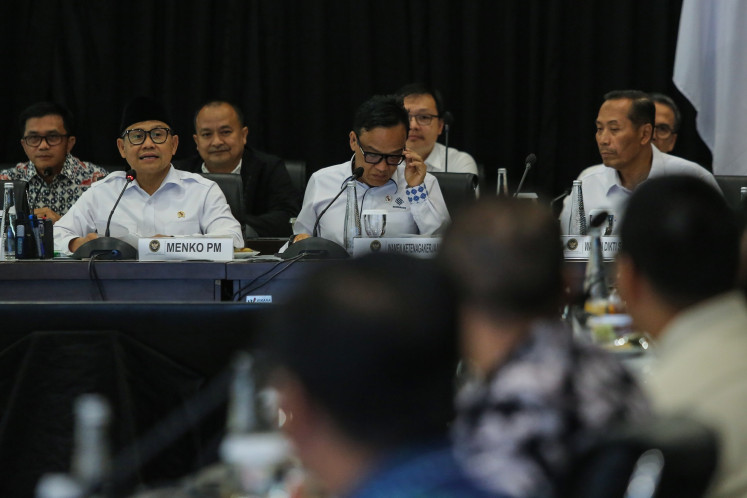Popular Reads
Top Results
Can't find what you're looking for?
View all search resultsPopular Reads
Top Results
Can't find what you're looking for?
View all search resultsDraft deadlocked over key issues
Negotiations on the draft of the ASEAN Framework Instrument on the Protection and Promotion of the Rights of Migrant Workers are in deadlock, with Malaysia refusing to agree on key points
Change text size
Gift Premium Articles
to Anyone
N
egotiations on the draft of the ASEAN Framework Instrument on the Protection and Promotion of the Rights of Migrant Workers are in deadlock, with Malaysia refusing to agree on key points.
An official at the Indonesian Foreign Ministry, Ben Perkasa Drajat, said Wednesday the draft was now going nowhere, after deadlock at the last meeting in Kuala Lumpur, Malaysia, in December last year.
“In fact, [at the last meeting] there was a contending draft to the one we had made based on the results of the Manila meeting,” he said at a discussion on the draft deliberations set up by independent organizations the Human Rights Working Group, the ASEAN People’s Center and the Task Force on ASEAN Migrant Workers.
On March 30, 2009, the Manila meeting agreed on some contentious key points to be included in
the draft.
Ben said the contending draft was proposed by a migrant worker-receiving country. Singapore and Malaysia are the region’s two biggest worker-receiving countries.
“As a result, the draft is now hanging by a thread,” he said.
The first draft was worked on by the governments of both Indonesia and the Philippines — the two largest migrant worker providers in the region — and had taken submissions from countries receiving migrant workers into consideration, he said.
All country participants at the Manila meeting agreed the instrument would be legally binding.
“But the contending draft said it should not be legally binding and undocumented migrant workers should not be included,” Ben said.
He said the Manila meeting had agreed to use the International Labour Organization’s definition of migrant workers, to include documented and undocumented migrant workers, and to include migrant workers’ families in the instrument.
The whole process from the sending of migrant workers to their transit points and on to their final destinations would be regulated and laws in migrant worker-sending and receiving countries must be abided by, he said.
Deputy director for international cooperation at the Manpower and Transmigration Ministry Roostiawati said Malaysia had been the only stumbling block in the negotiation.
“But there has been some progress... after we began temporarily halting the sending of our migrant workers to Malaysia,” she said.
Roostiawati said the Malaysian home affairs minister visited a shelter for migrant workers at the Indonesian Embassy in Malaysia last week and asked Indonesia to lift the suspension.
Asian Forum for Human Rights and Development official Yap Swee Seng said it “doesn’t make sense” for Malaysia to refuse to accept that the instrument be legally binding.
He said all ASEAN countries, including Malaysia, must ratify the draft to protect migrant workers, like the conventions on child protection and elimination of discrimination against women.
Indonesian Migrant Workers Union secretary-general Chairul Hadi said an undocumented migrant worker should not be seen merely as someone who went overseas to improve his life.
Ben said the draft team had set options to find a way forward, as the ASEAN sociocultural community blueprint stipulated the instrument must be in place by 2015.


